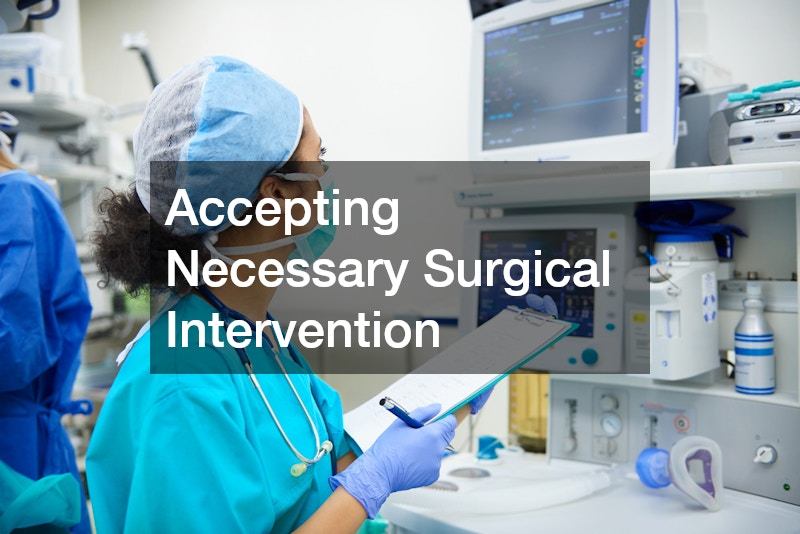

In today’s fast-paced world, where stress and environmental factors continuously impact our health, adopting a holistic health approach becomes more crucial than ever. Holistic health considers not only the physical aspects of well-being but also addresses mental, emotional, and social factors that influence our overall health status. It recognizes that our bodies are interconnected systems, and taking care of one aspect without considering the others may not yield effective results.
By integrating traditional medical practices with alternative therapies, holistic health offers a more comprehensive view of wellness. This approach empowers individuals to understand their bodies better and take proactive steps towards a balanced and healthy lifestyle. With an increasing number of healthcare professionals advocating for holistic methods, it’s vital to explore why this approach is gaining traction among doctors and patients alike.
Emphasizing preventative care and lifestyle changes, holistic health encourages personal responsibility and self-awareness. As we delve into the key reasons doctors advise this approach, we’ll explore various aspects, including understanding the body’s systems, mental and physical health connections, and embracing both functional and aesthetic health improvements. With holistic health, individuals can not only achieve optimal wellness but also enhance their quality of life and longevity.
Understanding Your Body’s Systems

Every system in the human body is intricately tied to others, forming a complex web of biological interactions. A holistic health approach provides a gateway to understanding these connections, emphasizing the need to consider the body as a whole rather than isolated parts. For instance, hormone replacement therapy not only affects hormonal levels but can also have significant impacts on mood, energy levels, and even bone health.
Engaging in holistic practices supports a deeper understanding of how interventions, such as hormone replacement therapy, influence various bodily systems. For instance, when addressing hormonal imbalances, one might also observe changes in metabolic function and emotional stability. Recognizing these systemic interactions fosters a more comprehensive approach to healthcare where treatments are customized to enhance overall well-being.
The intricate balance within our systems requires careful attention to detail. Engaging with healthcare professionals who prioritize holistic health can lead to targeted adjustments that improve outcomes significantly. The body’s ability to heal and regenerate is supported through a comprehensive understanding, making holistic practices central to long-lasting health improvements and managing conditions like hormonal imbalances effectively.
Connecting the Physical and Mental
The link between physical and mental health is undeniable, yet often overlooked in conventional medical practices. Holistic health approaches shed light on this connection, fostering a more profound understanding of how mental states can affect physical well-being and vice versa. For instance, hormone replacement can impact mood disorders, showcasing the intertwined nature of physical and mental health.
Addressing issues like anxiety or depression often involves understanding underlying hormonal imbalances or nutritional deficiencies. Through a holistic lens, patients can explore comprehensive treatment plans that target both mental health concerns and physiological conditions. This dual-focused approach not only enhances treatment efficacy but also empowers patients to take charge of their wellness journey.
Integrating practices such as mindfulness, nutrition, and physical therapy allows for a balanced approach to both mental and physical health maintenance. Therapies like yoga, meditation, and Tai Chi promote mental clarity and physical resilience, underscoring the holistic mantra that a healthy body nurtures a healthy mind. As such, adopting these methods can yield substantial gains in general well-being and mental health.
Caring for All Parts
Holistic health advocates for attending to all parts of the body, ensuring comprehensive care that transcends standard medical practices. This includes paying attention to oral health, which is often neglected despite its critical role in overall wellness. Regular visits to the dentist, for instance, offer more than just cavity prevention—they’re essential for maintaining systemic health, aiding in the prevention of broader issues such as heart disease.
Practicing holistic care involves acknowledging the diverse needs of each body part and the interconnected effects on the whole system. For example, neglecting oral health can contribute to malnutrition or even worsen diseases due to bacterial infections originating in the mouth. Thus, the holistic approach emphasizes regular checkups, preventive care, and patient education for nurturing the entire body.
This comprehensive care plan extends to dental health services, including procedures that may seem merely cosmetic but play crucial roles in self-esteem and quality of life. Services like teeth whitening not only enhance appearance but also encourage good oral hygiene. By integrating aesthetic and functional care, patients benefit from an all-inclusive approach that fosters both physical health and emotional balance.
Including the Whole Family

Holistic health is a family affair, impacting not just the individual but also the well-being of their loved ones. Pediatric orthodontists, for example, recognize the importance of early intervention in children’s dental health, which can reduce future complications and instill lifelong habits. This proactive attention aligns with holistic principles that prioritize prevention over treatment, ensuring lasting wellness from a young age.
By incorporating holistic health practices, families can collectively foster a nurturing environment focused on wellness. Family-oriented approaches include shared activities like exercise and cooking, which promote physical health while strengthening family bonds. Moreover, holistic healthcare providers often offer family-centric services, ensuring that every member has access to tailored care that suits their unique needs.
The embracing of a holistic health mindset within families leads to cohesive understanding and support networks that are vital for tackling health challenges. As families engage in practices that prioritize balanced diets, adequate physical activity, and emotional support, they set a foundation for collective growth and resilience. Thus, adopting a family-based holistic approach yields wide-ranging benefits that extend beyond individual health.
Enjoying Aesthetic Updates
The holistic health approach appreciates the significance of cosmetic improvements alongside functional health. While procedures like teeth whitening may appear superficial, they contribute significantly to an individual’s confidence and social interactions, which are vital aspects of emotional health. Aesthetic care aligns with holistic principles by supporting psychological well-being and promoting a positive self-image.
Beyond aesthetics, these enhancements often encourage individuals to develop sustainable health habits, such as regular brushing and flossing. In this way, aesthetic treatments can serve as gateways to more comprehensive health practices, benefiting physical health as much as they boost morale. Such practices highlight the importance of a multi-faceted approach in holistic health, where beauty and function go hand-in-hand.
Holistic health doesn’t shy away from surgical or cosmetic procedures when they’re indicated as necessary. Instead, it integrates them into a broader health strategy that balances mental satisfaction with physical wellness. Whether it involves teeth whitening or contouring, these enhancements play vital roles within the holistic tapestry of self-care, improving quality of life and personal contentment.
Finding Your Identity
A core tenet of holistic health is finding professionals who understand and cater to your individual needs. The significance of an inclusive therapist cannot be understated, as each person’s health journey is unique, with specific cultural, emotional, and physical aspects that need representation and understanding. Recognition of individuality allows for personalized health strategies that accommodate diverse backgrounds and experiences.
Establishing trust with a health provider is paramount, as it encourages transparency and openness in managing one’s health. Such partnerships aid in crafting treatments that consider all facets of an individual’s identity, enhancing the effectiveness and satisfaction with their health journey. Incorporating inclusive practices into holistic health thus ensures that every aspect of a person’s life is acknowledged and respected.
Through a holistic lens, health is understood as deeply personal, tied to one’s identity, history, and experiences. Providers who advocate for inclusivity champion the notion that healing is not one-size-fits-all, prompting exploration of adaptive strategies that celebrate uniqueness. In doing so, individuals find empowerment and support, reinforcing the holistic values of compassion and understanding.
Treating Mental Health

Mental health is an integral element of holistic health, demanding attention and care aligned with physical wellness. Certified addiction professionals, for example, play critical roles in addressing the complexities of addiction through individualized, comprehensive care. They facilitate environments where patients heal both mind and body, offering integrated therapies that address root causes and prevention strategies.
The holistic perspective ensures mental health is not dealt with in isolation but in conjunction with broader life factors. This integrative strategy fosters an improved understanding of how stressors, lifestyle choices, and physical activity influence mental well-being. It encourages holistic interventions that include talk therapy, lifestyle modifications, and support systems to treat mental health challenges effectively.
By adopting a holistic approach to mental health, individuals can achieve sustainable recovery and improved quality of life. The focus on treating mental health as a component of comprehensive wellness underscores the need for collaborative care that nurtures both psychological and physiological domains. As such, the holistic model supports mental resiliency, leading to healthier, happier lives.
Managing Pain Effectively
Pain management is another domain where holistic health thrives, offering solutions that address pain’s root causes rather than merely symptoms. Embracing a whole-body approach, holistic practitioners might recommend lifestyle modifications, physical therapy, or alternative medicine alongside conventional methods. Here, attentiveness to diet, exercise, and ergonomics plays a pivotal role in managing pain sustainably.
Collaboration between patients and healthcare providers facilitates personalized treatment plans that encompass various aspects affecting pain. Understanding the underlying factors and triggers allows for strategic interventions, reducing reliance on medications and emphasizing natural healing modalities. This aspect of tbd is particularly beneficial in pain management, ensuring long-term relief and enhanced daily function.
Holistic management of pain acknowledges the profound interplay between physical discomfort and emotional distress. Strategies that incorporate breathing exercises, meditation, and stress-relief techniques often yield comprehensive improvements in pain perception and quality of life. Such an approach ensures that patients not only find relief but also foster empowerment in handling chronic pain conditions.
Focusing on Natural Solutions
Many individuals turn to holistic health for its emphasis on natural, less invasive solutions, with chiropractic adjustment being a primary example. Chiropractic care focuses on musculoskeletal alignment, relieving back pain, and enhancing the body’s natural ability to heal itself. This practice underlines the holistic belief that the body possesses inherent recuperative powers that need regular support and nurturing.
Patients pursuing tbd often seek to minimize pharmaceutical interventions, favoring organic and lifestyle-based remedies. This guidance leads them to explore alternatives such as dietary modifications, herbal supplements, and physical therapy. These choices emphasize an integrative health approach towards optimizing well-being and preventatively addressing illnesses before they fully manifest.
Emphasizing a less-is-more philosophy, practitioners encourage patients to explore various natural treatments and lifestyle changes that seamlessly integrate into daily life routines. This strategy not only safeguards against potential side effects of conventional treatments but also strengthens the body’s resistance to future ailments. In doing so, patients find a balance between nurturing health naturally and seeking more conventional therapeutic endeavors.
Accepting Necessary Surgical Intervention

Even within holistic health realms, the recognition of when surgical intervention becomes a necessity is crucial. Procedures like dental implants showcase how surgical methods can restore functionality and improve life quality when other therapies have exhausted their potential. It’s important that patients adopt a balanced view, acknowledging scenarios where surgery contributes positively to their holistic health journey.
Incorporating surgery as part of a holistic treatment strategy does not conflict with holism; rather, it complements a comprehensive care plan. When surgery is required, it is viewed as a component of a larger array of treatments that collectively aim for rejuvenation and long-lasting health. This underscores the importance of remaining open to all viable treatment options, ensuring a holistic path to recovery.
The decision to undergo surgery is significant and aligns with holistic priorities that ensure every choice holistically contributes to wellness. Discussion with healthcare providers centers on understanding the benefits, risks, and recovery paths to make informed decisions. Recognizing the role surgical interventions play in restoring health further legitimizes the holistic emphasis on personalized, multifaceted care.
The holistic health approach embraces a comprehensive mindset, integrating physical, mental, and emotional dimensions to promote optimal wellness. By recognizing bodily systems as interconnected, it fosters treatments like hormone replacement therapy and chiropractic adjustment that enhance overall well-being. This versatile strategy caters to individual needs, caters to the whole family, appreciates aesthetic improvements, and appreciates both natural solutions and necessary medical interventions. Through holistic health practices, individuals and families alike can achieve profound, lasting improvements in their health journey. Embracing these methods leads to a well-rounded approach that nurtures physical vitality, mental clarity, and emotional balance.